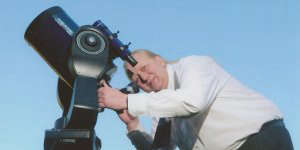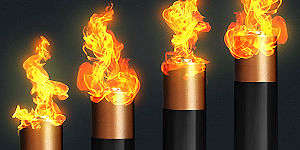
Monday 23rd to Sunday 29th October 2023
Tuesday 24th is an excellent opportunity to observe Venus as the planet reaches its greatest western elongation from the Sun, separated from it by 46 degrees. The planet will be shining brightly at a magnitude of around -4.5 in the early morning sky.
If you look towards the east, Venus appears above the horizon from 4am and it will be very easy to spot with the naked eye.

During the evening of Saturday 28th, we have a partial lunar eclipse. The event occurs between 8.30pm and 10pm. At that time, the Moon will be located towards the east, a little above and to the right of Jupiter.

The main part of the eclipse, also known as the umbra, will be seen as a shadow across the southern part of the Moon's face, just below the large crater Tycho.

A lunar eclipse occurs when the Moon passes through the shadow cast by the Earth or in other words, we are blocking some of the sunlight from reaching the Moon's surface.

Finally, a reminder that British Summer Time ends at 2am on Sunday 29th. The clocks go back an hour to 1am. There are two bonuses - firstly we get an extra hour in bed that morning and more importantly, I don't have to keep adding an hour on to my Stars Over Somerset reports. Astronomers, in common with many other sciences, don't bother with different time zones and summer times - they stick to the worldwide standard of UTC or Universal Time Coordinated which happens to be the same as GMT or Greenwich Mean Time which is what we use during the winter months. Keeps it nice and simple!
www.starsoversomerset.com
Screenshots courtesy of Stellarium
Copyright Adrian Dening and Radio Ninesprings 2023

 New High Sheriff
New High Sheriff
 Battery Fires
Battery Fires
 Domestic Abuse
Domestic Abuse
 False Fire Alarms
False Fire Alarms
 Dog DNA
Dog DNA
 Mobile Phones in Vehicles
Mobile Phones in Vehicles








